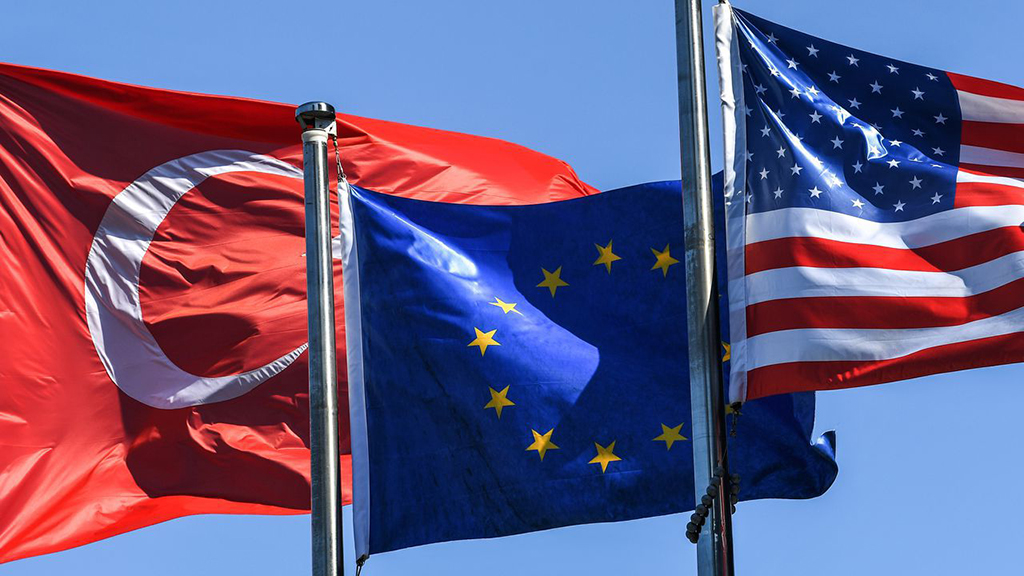We experienced another historic night on May 14. The number of votes President Erdoğan received, surpassing 27 million, represents the highest vote count ever recorded. Despite the theories that 5 million new voters would be a handicap for him, the sense of "enough is enough" among the electorate would help secure victory for the opposition, and the economic problems would guarantee a change in power, we saw that these claims did not materialize in the results. The problems among the opposition, their inability to offer a clear message despite the formulation of a joint program, and the difficulties faced by candidate Kılıçdaroğlu in persuading large masses determined the fate of the election. Thanks to the strong psychological advantage brought by the first round, Erdogan will secure a greater proportional advantage and win in the second round.
The election results will have many important implications for domestic politics. Small parties, as opposition partners, will be represented in the parliament, but while the People's Alliance will have a minority, party leaders will have to engage in politics outside the parliament. It would not be surprising for the Republican People's Party (CHP), which could not receive electoral support for fielding a presidential candidate, to start discussions on both vision and leadership. The dominance of the People's Alliance in the parliament and Erdogan's re-election as the president will mean that the government holds the majority to fulfill its promises in areas such as the economy, education, and the fight against terrorism. Without a fundamental transformation, the opposition will not be able to provide an alternative to the government in this equation. During the campaign period, we already witnessed that despite various problems, the people found it difficult to believe in the opposition's ability to govern and transform the country.
From a foreign policy perspective, Türkiye's claim to be a regional power and global player will continue to strengthen. Türkiye has demonstrated its ability to make game-changing moves, especially in Syria, Libya, and the South Caucasus, following the attempted coup in 2016. During the pandemic, Türkiye made critical contributions to the global supply chain and emerged as an active actor in the fight against climate change. We observed that Türkiye, which had strained relations with Gulf countries due to its prevention of the blockade on Qatar, restored these relations last year. While standing by Ukraine during its occupation and not wanting to sever ties with Russia, Türkiye elevated its relations with Central Asia to the highest level. We also witnessed that Türkiye continues to play an active role in international platforms such as NATO and the UN, and it has also improved its trade relations with Europe.
Thanks to the renewed political legitimacy provided by the election results, the ruling party will be in a more comfortable position to fulfill its promises in domestic politics in the coming period. If the People's Alliance seeks major initiatives such as a new constitution, it may need support from opposition parties, but whether the conditions for this support will materialize remains to be seen. The "comfort" in domestic politics may facilitate the continuation of Türkiye's regional influence and global aspirations in foreign policy. It is evident that Türkiye will come to the negotiating table with Russia, Iran, and the Syrian regime in a stronger position regarding its efforts to address security concerns in northern Syria. Türkiye's priorities will include further narrowing the area of PKK/YPG in Syria and facilitating the safe return of willing refugees to their countries. Achieving these goals will also facilitate Türkiye's contribution to a comprehensive political solution in the Syrian issue.
We can say that the election results will provide a broader maneuvering space in relations with Europe and the United States. It is not difficult to predict that Türkiye will continue to pursue a balanced policy, prioritizing its national interests, in the face of the West's confrontation with Russia and China. However, in the coming months, we may witness more intense conflicts on the Ukrainian front, as well as Russian efforts to retreat and maintain their gains. It should be kept in mind that Western support for Ukraine may not lead to a definitive defeat for Russia, and there is a possibility of the war lasting for years and a decrease in Western support. In the case of a clear Russian defeat, Türkiye can make a critical contribution to the reconstruction of Ukraine, and in the event of a prolonged war, it can seek diplomatic solutions. In both scenarios, Türkiye's balance policy on the Ukrainian issue will allow for more coordinated action with the West.
Türkiye's gaining ground against the PKK/YPG in Syria may lead to a decrease in tension in Turkish-American relations by compelling the United States to reconsider its support for the YPG. Partial convergence with Europe and the United States on the issue of Ukraine can also enhance Türkiye's effectiveness within NATO. These dynamics in foreign policy can contribute to Türkiye's economy by increasing direct foreign investments from the West. The election results, by signaling the message of ensuring domestic political stability for the next five years, will also encourage foreign investors. Considering Türkiye's geopolitical position and regional issues, it is neither necessary nor possible for Türkiye to be on the same page with the West on all matters. However, increasing the areas of cooperation with the West while prioritizing national interests will contribute to Türkiye's economy, regional influence, and global actor role.
[Yeni Şafak, May 17, 2023]








